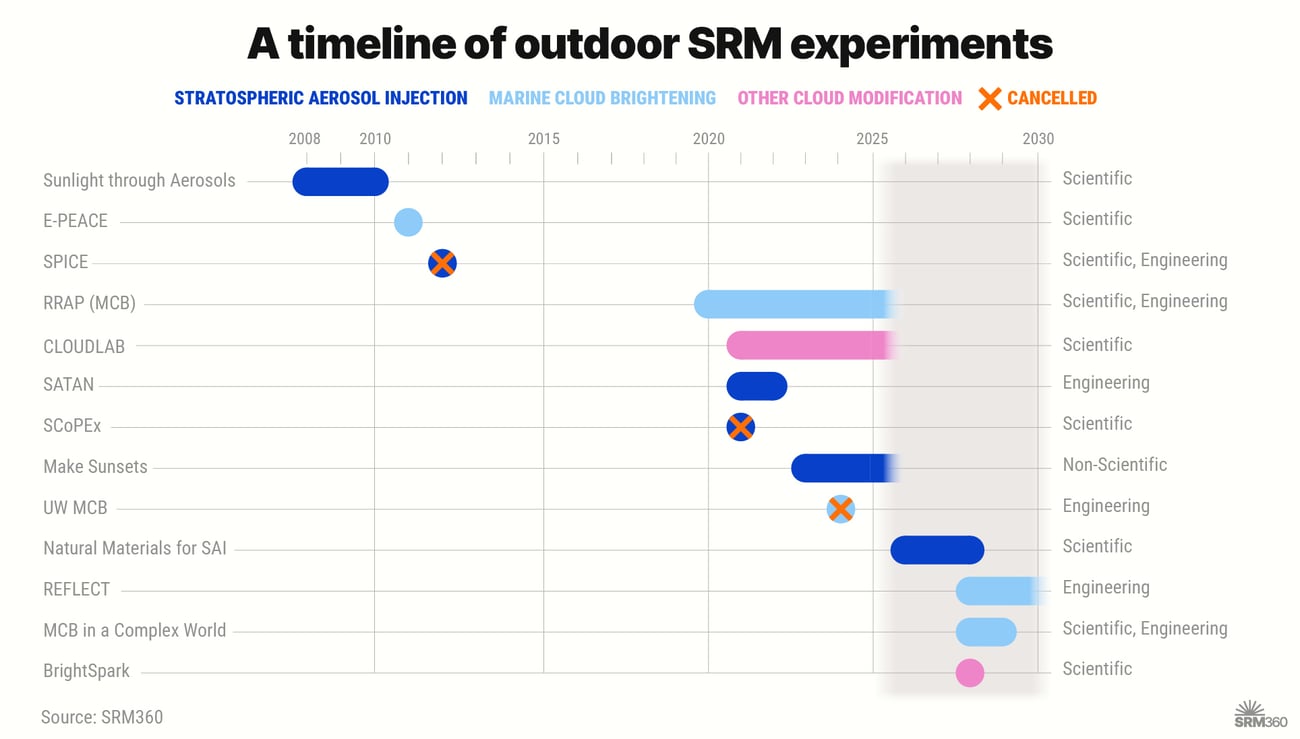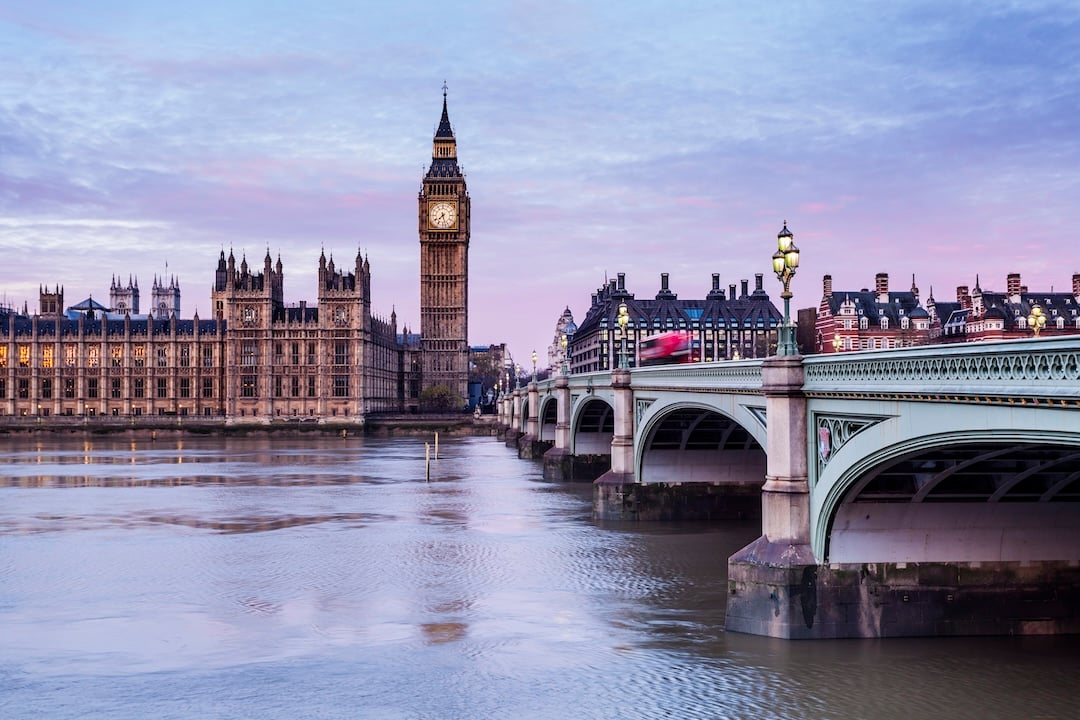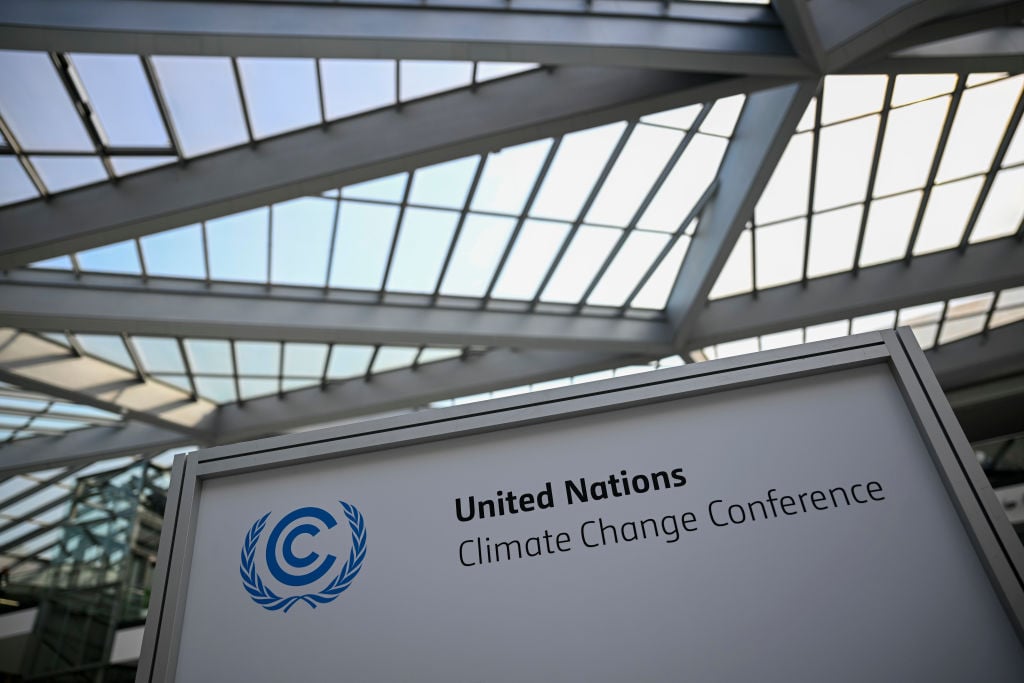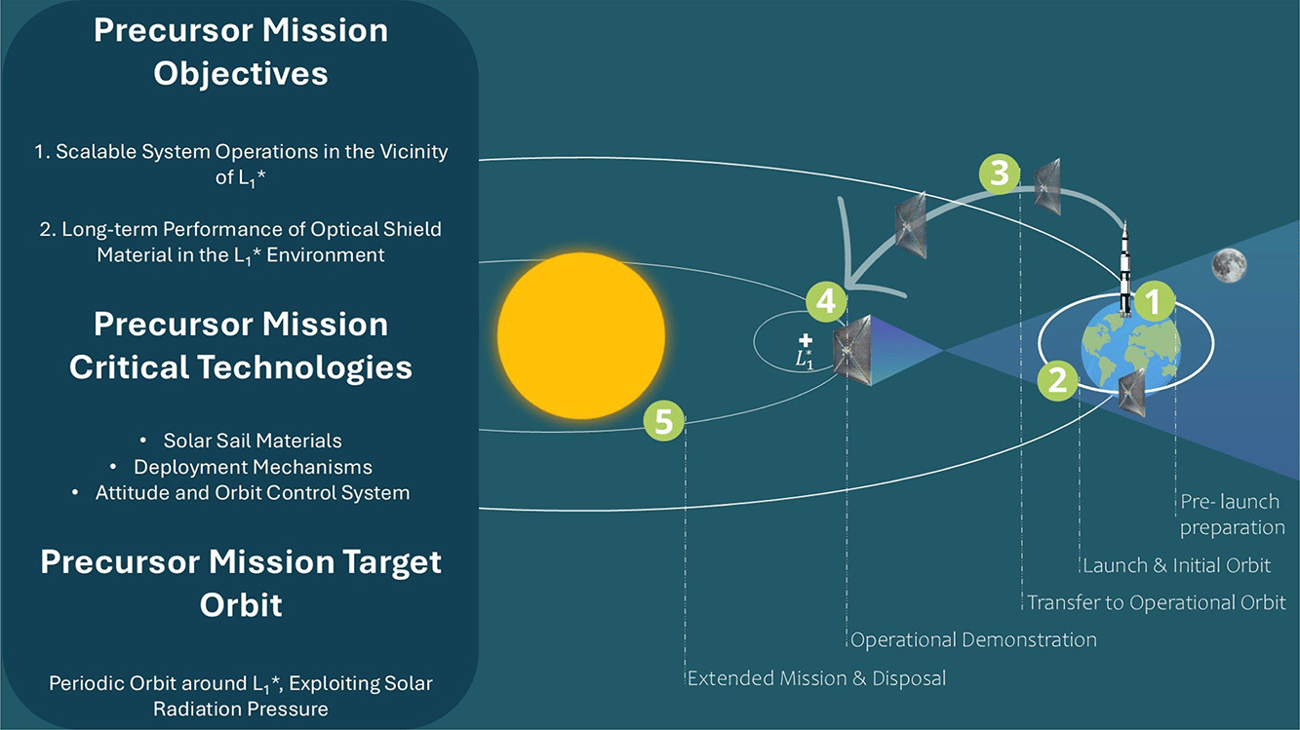|
|
|
June 2025 Update
Dear ,
We are delighted to launch our new Outdoor Experiments Tracker. From ARIA’s newly funded field experiments to cancelled, completed, and ongoing projects, the tracker and accompanying article and podcast cover the history and motivations behind this often controversial work.
You can also see what five newly planned outdoor experiments could look like with our downloadable and free-to-use infographics.
This release comes ahead of a UK parliamentary debate on 23 June, responding to a public petition to ban geoengineering. We share initial reactions below and will report further after the debate. Meanwhile, Louisiana became the latest US state to ban geoengineering.
Also new: check out our Events page to explore upcoming SRM-related discussions, conferences, and public forums. And you can watch our Degrees Forum wrap-up video, featuring highlights and key takeaways from the global gathering.
Finally, an appeal. SRM360 is seeking additional funding to continue our work. We welcome any expressions of support for how we are contributing to a more informed debate around solar geoengineering. Please do write and tell us how we are providing value – this feedback is invaluable in our outreach to donors.
Read on for the latest in SRM news, research, and media coverage.
-The SRM360 Team |
|
|
New From SRM360 |
|
|
 |
|
|
Explore past, current, and planned outdoor SRM experiments with our new tracker and accompanying resources. |
|
|
|
|
|
|
|
|
|
We explore the contribution that outdoor SRM experiments can make to understanding these ideas, and the controversy around these studies.
Listen at srm360.org or on your preferred podcast platform. |
|
|
|
|
|
|
Community News and Events |
 |
Getty Images. Credit: Julian Elliott Photography |
|
Upcoming UK Parliament debate
On 23 June, the UK Parliament will hold a debate on geoengineering in response to a petition with over 150,000 signatures. The petition is titled “Make all forms of 'geo-engineering' affecting the environment illegal”.
A growing, diverse community
Lisa Dilling, an associate chief scientist at the Environmental Defense Fund, expressed optimism that SRM research is gaining momentum with major public funding from the UK’s ARIA, increased global participation through forums like Degrees in Cape Town, and a growing emphasis on transparency, equity, and responsibility in SRM research.
Arguments against a global moratorium
Sue Biniaz and Daniel Bodansky argue in Just Security that an international moratorium might have a chilling effect on research, could be time-consuming and distracting, and might not prevent the most irresponsible actors. Instead, they argue states should undertake a model national research programme and pursue other confidence-building measures.
Co-CREATE launches webinar series
Kicking off with a session on “Introducing Solar Radiation Modification: Current Knowledge and Future Challenges”, speakers discussed the current state of SRM. You can join the next session, “Ethical Guidelines for SRM Research: Legitimacy, Recognition, and Procedural Justice” online on 24 June.
Why engage with SRM research?
Operaatio Arktis and the Green Africa Youth Organization collaborated to create a compilation of expert interviews, exploring why different stakeholders are interested in engaging with SRM. |
|
|
In the Media |
 |
Getty Images. Photo Credit: Sascha Schuermann |
|
Bonn off to a slow start
Political disagreements (Climate Home News) over the agenda, especially around climate finance and trade measures, slowed the start of the talks in Bonn ahead of COP30 later this year. The US is also notably absent from the conference.
Could SRM be used as a weapon?
Security concerns were raised after The Telegraph leaked a letter in which the UK government highlighted the need to understand “the risks and impacts of [solar radiation modification] approaches that could be deployed by an independent or third-party actor”. British tabloids, such as the Daily Mail and The Express, speculated that Putin may be the most likely to attack, though researchers believe SRM would make for a poor weapon.
Legislation driven by conspiracy theories
The US health secretary, Robert F Kennedy Jr, states he is “determined to take action on chemtrails” (The Guardian). Meanwhile, Louisiana became the latest state to ban SRM (AP & The Cool Down).
A closer look at ARIA’s planned outdoor experiments
Several articles explored what ARIA’s intended outdoor experiments include. The Conversation hosted two alternate viewpoints from Robert Chris and Will de Freitas.
Learn more about these experiments in our tracker. |
|
|
|
|
|
SRM Academic Highlights |
 |
Credit: Coco et al. |
|
A plan to test space-based SRM
In their study, Coco et al. present a design for a precursor mission to test aspects of a potential planetary sunshade. It would cost an estimated $10 million and aim to place shielding materials about 2 million km from Earth.
Rainfall extremes in Southeast Asia
Kuswanto et al. find that the impacts of SRM on rainfall extremes vary considerably across Southeast Asia. Indonesia could see reductions in extreme rainfall while the Philippines, Vietnam, and Thailand could face exacerbated drought risks.
SRM and renewables in the Caribbean
Williams et al. investigate the effects of SAI and MCB on solar and wind power generation in the Caribbean. The impacts on solar power are generally small, but more substantial changes are seen for wind, with large increases in some areas – particularly from MCB. |
|
|
Join Us on Social Media |
|
|
|
|
|
Want even more SRM content?
Manage your subscription preferences to receive our weekly and event-related updates.
Receive this newsletter from a friend and want it in your inbox?
Subscribe. |
|
|
| SHARE YOUR FEEDBACK |
|
|
 |
Copyright (C) 2025 SRM360. All rights reserved. |
|
|